Life
-
 Brain
BrainScientists Say: Stereoscopy
Stereoscopy allows the brain to perceive the two 2-D images seen by the eyes as a 3-D scene.
-
 Plants
PlantsElectric shocks act like vaccines to protect plants from viruses
To protect crops against viruses in their home country of Taiwan, two teens invented a novel approach to fight blights.
By Anna Gibbs -
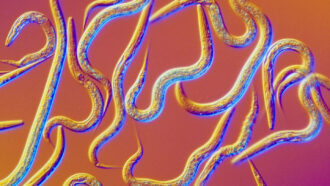 Health & Medicine
Health & MedicineLike bloodhounds, worms are sniffing out human cancers
Scents emitted by diseased cells may usher in a new era of safe, low-cost screening tests for cancer and other illnesses.
-
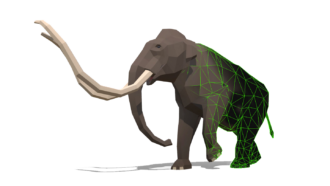 Tech
TechSmartphones can now bring Ice Age animals back to ‘life’
Scientists bring Ice Age creatures to life with augmented reality. You can view these creatures in your own world on a smartphone.
By Laura Allen -
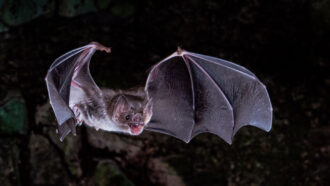 Animals
AnimalsLosing some genes may explain how vampire bats can live on blood
Loss of 13 genes active in other bats could support the vampires’ blood-eating strategies and adaptations.
-
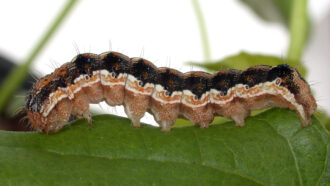 Animals
AnimalsInfected caterpillars become zombies that climb to their deaths
By tampering with genes involved in vision, a virus can send caterpillars on a doomed quest for sunlight.
By Jake Buehler -
 Psychology
PsychologyLying won’t stretch your nose, but it will steal some brainpower
The science of lying shows that most people don’t lie often. But when they do, it takes a surprising toll on their brains.
-
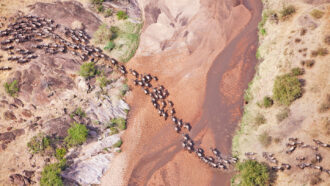 Animals
AnimalsScientists Say: Migration
Migration involves the movement of animals or people from one place to another.
-
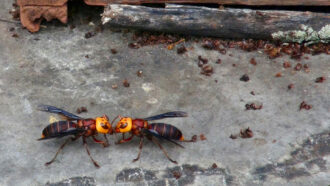 Animals
AnimalsThe scent of queen ‘murder hornets’ can lure males into traps
Traps baited with compounds found in the mating pheromone of hornet queens attracted thousands of males.
-
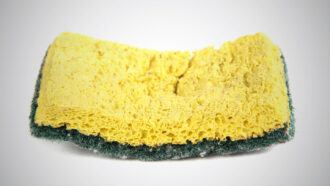 Microbes
MicrobesKitchen sponges are bacteria’s dream home
Sponges are favorite spots for bacteria, partly because of the mixed-housing environment that the cleaner-uppers offer microbes.
By Anna Gibbs -
 Chemistry
ChemistryScientists Say: Inorganic
Inorganic molecules include salts, minerals and other compounds that lack organics’ carbon-hydrogen bonds.
-
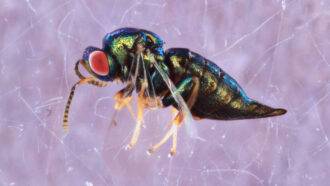 Animals
AnimalsSurprise! Sixteen tiny wasp species found masquerading as one
Scientists used new and old tools to overturn 160-year-old ideas about this wasp. They show you can’t tell a wasp by its looks.